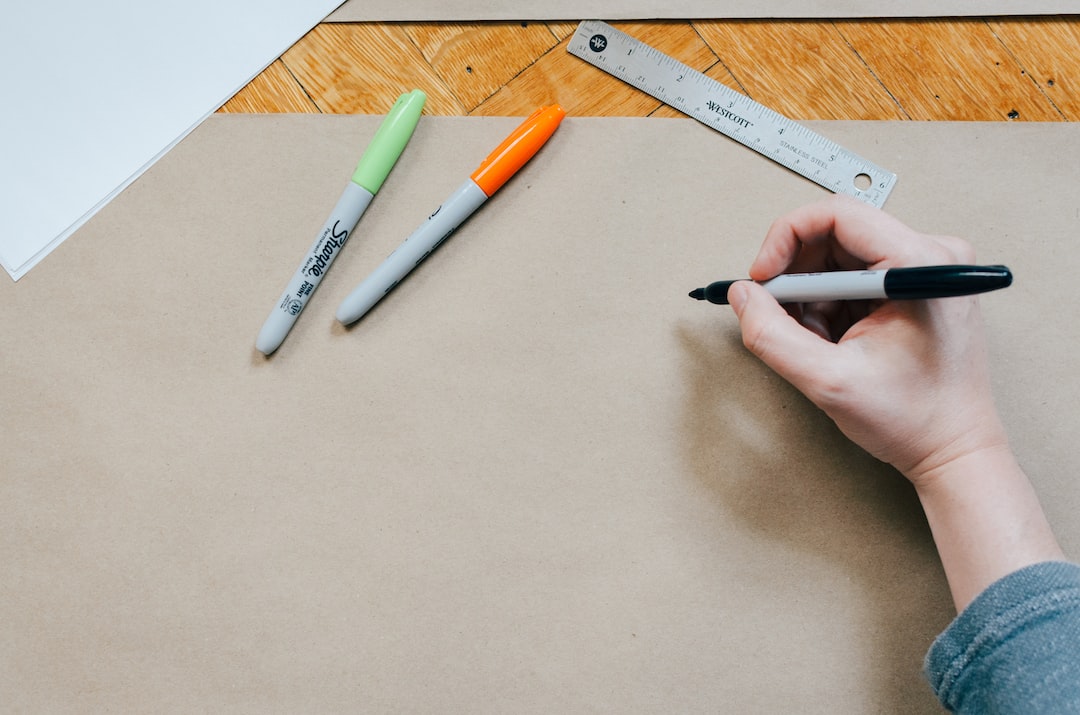How to Master the Art of Calligraphy
Calligraphy is the exquisite art of beautiful handwriting. It has been practiced for centuries and is enjoyed by people all around the world. With its delicate strokes and elegant curves, calligraphy allows us to create stunning works of art that convey a sense of grace and style. If you have ever wanted to learn this captivating art form, here are some tips to help you master the art of calligraphy.
1. Start with the right tools
A key aspect of learning calligraphy is having the right tools. Invest in a good-quality calligraphy pen or brush that suits your preferences. Experiment with different nib sizes to find the one that works best for you. Additionally, choose high-quality ink that flows smoothly and doesn’t smudge easily. Good tools are essential to achieving beautiful results.
2. Learn the basic strokes
Mastering calligraphy requires a thorough understanding of the basic strokes. These include the upstroke, downstroke, and oval shapes. Practice these strokes until you feel comfortable and confident in executing them. Focus on creating consistent and smooth lines, as this is the building block for more complex letter forms.
3. Study different calligraphy styles
Calligraphy has various styles, each with its unique characteristics. Take the time to study and practice different styles such as Gothic, Italic, or Copperplate. Each style requires different techniques and has its own appeal. Experiment with different styles and choose the one that resonates most with you. Learning different styles will broaden your understanding of calligraphy and enable you to add your personal touch to your work.
4. Use guidelines and grids
Guidelines and grids are invaluable tools for calligraphy practitioners. Use lined paper or create your own guidelines to help you maintain consistent letter spacing and size. Grids, on the other hand, can be used to ensure your letters are aligned correctly. They provide a structured framework that aids in producing neat and visually appealing calligraphy pieces.
5. Develop a steady hand and control
Calligraphy demands a steady hand and control over your strokes. Practice exercises such as drawing straight and curved lines, circles, and shapes to improve your hand control. These exercises will train your muscles and help you achieve the desired precision and smoothness in your lettering. Remember that patience and practice are key to building your dexterity in calligraphy.
6. Start with basic letter forms
After mastering the basic strokes, start practicing individual letters. Begin with lowercase letters, focusing on achieving consistency and smoothness in each stroke. Pay attention to details such as stroke width, slant, and proportions. As you gain confidence, progress to uppercase letters and move on to letter combinations and eventually words and phrases. Breaking down the learning process into manageable steps will help you build a solid foundation in calligraphy.
7. Study calligraphy resources and find inspiration
Learning calligraphy is an ongoing journey, and there is always something new to discover. Immerse yourself in calligraphy books, online tutorials, and workshops to expand your knowledge and skills. Look for inspiration in the works of renowned calligraphers, both ancient and modern. Analyze their techniques and try to incorporate their distinct style elements into your own work. The more you explore and learn, the richer your calligraphy will become.
8. Practice regularly and be patient
As with any art form, consistent practice is crucial for honing your calligraphy skills. Set aside dedicated time to practice calligraphy regularly. Devote yourself to the process, even if it means just spending 15 minutes a day. Be patient with yourself and understand that mastery takes time. Embrace the imperfections and view them as opportunities to grow and improve.
Calligraphy is a timeless and rewarding art form that allows us to express our creativity and personality through beautiful handwriting. With the right tools, techniques, and dedication, anyone can learn to master the art of calligraphy. So pick up your pen, let your imagination flow, and watch as the elegance of your words takes shape. Happy writing!
